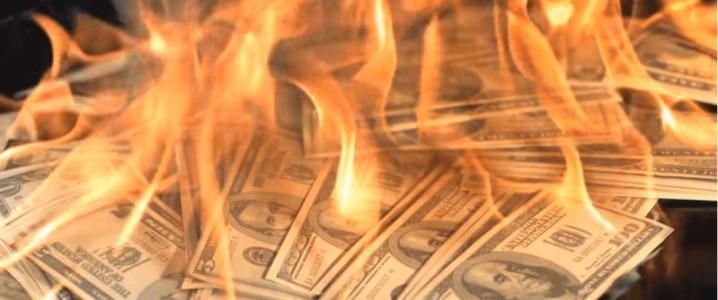$40 Oil Isn’t Enough To Prevent A Wave Of Shale Bankruptcies
Tyler Durden
Thu, 07/02/2020 – 12:15
Authored by Tsvetana Paraskova via OilPrice.com,
The coronavirus pandemic and the oil price collapse are accelerating the pace of bankruptcy filings in the U.S. shale patch this year. The number of filings had already started to trend up in 2019 after a drop in prices in Q4 2018, but this year, the U.S. energy industry is setting some grim records as indebted cash-strapped producers face a day of reckoning from the borrowing exuberance of the past years.
So far this year, bankruptcies in the U.S. energy industry have exceeded 20 filings from companies with more than US$50 million in liabilities. This is the highest number of first-half filings for protection from creditors since the first half of 2016, during the previous oil price collapse, according to data compiled by Bloomberg. In June alone, seven oil and gas companies filed for Chapter 11, matching the record from the monthly peak in bankruptcy filings set in April 2016.
Many U.S. oil and gas drillers were already living on borrowed time even before the COVID-19 pandemic, thanks to heavy borrowings from banks over the past years. But the crash in oil demand and the collapse in oil prices shortened the time for indebted companies to be able to kick the can down the road, accelerating the upward trend in bankruptcy filings.
Analysts and legal professionals expect more energy bankruptcies in the U.S. shale patch in the coming months even as WTI Crude prices more than doubled to nearly $40 a barrel by the end of June from the average in April.
The number of filings for protection from creditors in the energy sector has been the second-highest so far this year, second only to bankruptcies in the retail and entertainment industry, according to Bloomberg estimates.
In the last week of June alone, several companies filed for Chapter 11 protection, including fracking pioneer Chesapeake Energy, the biggest victim of the price crash so far and the most prominent example of the U.S. shale industry’s modus operandi of the past few years—borrow to drill.
Chesapeake has reached an agreement with creditors to restructure some US$7 billion out of its US$9 billion debt.
Granted, Chesapeake could have resorted to bankruptcy filing even in the absence of the pandemic and the collapse in demand and prices.
“This filing has been a long time coming,” Alex Beeker, principal analyst on Wood Mackenzie’s corporate upstream team, said.
“It was likely going to happen with or without Covid-19.”
“If I were to describe Chesapeake in one word, that word is ‘excess’ – excess liabilities, excess costs, excess gas in an oversupplied market, said Beeker.
While Chesapeake was the headline in the U.S. energy bankruptcies this past week, two other energy firms filed for protection from creditors—Permian producers Lilis Energy and Sable Permian Resources.
Before that, between January and May, 18 oil and gas firms in North America filed for bankruptcy, including Diamond Offshore Drilling and Whiting Petroleum, data from law firm Haynes and Boone showed.
Chesapeake’s high-profile bankruptcy this week is indicative of the ‘excess’ in the U.S. shale patch, which had borrowed heavily in recent years, and some companies ultimately ‘drilled themselves into oblivion’ as Harold Hamm had warned back in 2017.
The window of financing for the U.S. energy industry is closed, as creditors and investors had soured on the shale patch more than a year before the pandemic struck, and prices crashed for the second time in four years.
In this low-for-longer price environment, a growing number of oil and gas firms are looking to restructure debt via Chapter 11 proceedings, especially in Texas, where the number of energy bankruptcies is the highest.
“Bankruptcy filings are up, and prevailing opinion is that the trend is only beginning. O&G-related bankruptcies represent a sizeable portion of the Chapter 11 filings in Texas, but retail bankruptcies and service-industry bankruptcies are hot on their heels,” John D. Cornwell, a shareholder and member of the bankruptcy, insolvency and restructuring practice group at law firm Munsch Hardt Kopf & Harr, told Texas Lawyer in a recent interview.
The industry should spend very wisely over the next few months because “Cash is truly king in today’s uncertain world,” Cornwell said.
